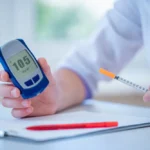Your thyroid might be small, but its impact on your health is enormous. This butterfly-shaped gland in your neck controls your body’s metabolism—the rate at which your body uses energy. When the thyroid isn’t functioning properly, it can lead to a wide range of symptoms that can affect your energy, mood, weight, and overall wellness. That’s why understanding how the thyroid works—and how tests like TSH thyroid (Thyroid Stimulating Hormone) fit into the bigger diagnostic picture—is essential.
Why Your Thyroid Matters
Your thyroid produces hormones like T3 (triiodothyronine) and T4 (thyroxine), which regulate essential functions including your heart rate, digestion, body temperature, and more. When everything is balanced, your body hums along effortlessly. But when hormone levels fall out of range, symptoms can creep in—often slowly and subtly.
Many people don’t know what is thyroid disease until symptoms begin to interfere with daily life.
Common signs of thyroid disease include:
- Unexplained weight gain or loss
- Fatigue or low energy
- Sensitivity to cold or heat
- Hair thinning or dry skin
- Mood swings or depression
- Brain fog or difficulty concentrating
If any of these symptoms sound familiar, it may be time to take a closer look at your thyroid function.
The Role of TSH: Your Thyroid’s Messenger
When thyroid doctors in NYC start evaluating thyroid health, one of the first tests they order is the TSH thyroid test. TSH is a hormone made by the pituitary gland, and it acts like a thermostat for your thyroid. If your body needs more thyroid hormones, the pituitary gland releases more TSH to signal your thyroid to step up production. If there’s too much hormone circulating, TSH production drops.
A high TSH level may indicate an underactive thyroid (hypothyroidism). In contrast, a low TSH level can suggest an overactive thyroid (hyperthyroidism). However, this test alone doesn’t tell the full story.
Beyond TSH: A Full Thyroid Panel
At Patients Medical, thyroid diagnosis doesn’t stop with TSH. That’s just the beginning. A comprehensive evaluation may include:
Free T3 and Free T4: These are the active thyroid hormones circulating in your bloodstream. They give a clearer picture of how much hormone is available to your body.
Reverse T3: This is an inactive form of T3. High levels can indicate that your body isn’t properly converting T4 into active T3, often due to stress or chronic illness.
Thyroid Antibodies: These tests help identify autoimmune conditions like Hashimoto’s thyroiditis, where the immune system mistakenly attacks the thyroid.
Thyroglobulin and Calcitonin: These markers can help rule out thyroid cancer or other unusual disorders.
By looking at this broader spectrum, practitioners can uncover nuances that a simple TSH test might miss.
Functional Medicine and Thyroid Health
One of the challenges many patients face is being told their thyroid levels are “normal” even though they feel anything but. This is where functional medicine shines. At Patients Medical, the team goes beyond standard lab ranges to look at optimal thyroid levels—the range where most people feel their best, not just what falls within the average.
For example, a person may have a TSH level that’s technically in range but still experience low energy and brain fog. Instead of dismissing those symptoms, a functional medicine doctor will consider how all thyroid markers relate to each other and how they align with the patient’s experience.
The Importance of Personalized Diagnosis

No two thyroid cases are exactly alike. Some people develop thyroid imbalances due to autoimmune conditions like Hashimoto’s thyroiditis treatment. Others may be affected by stress, nutritional deficiencies, environmental toxins, or even hormonal shifts such as pregnancy or menopause.
That’s why Patients Medical, a trusted thyroid treatment center NYC, takes the time to understand the whole picture. A detailed consultation often includes:
- A full health history
- In-depth lab testing
- Nutritional and lifestyle analysis
- Environmental and hormonal evaluations
By identifying the root cause, treatments can be customized rather than applying a one-size-fits-all approach.
Holistic Treatment Options
Once a diagnosis is made, the goal is to restore balance naturally whenever possible. While some patients may need thyroid hormone replacement therapy, others may benefit from supportive strategies like:
Diet and Nutritional Support: Optimizing iodine, selenium, zinc, and other nutrients that support thyroid function.
Gut Health Repair: Since thyroid conversion happens partly in the gut, healing gut imbalances can help hormone absorption and activation.
Stress Management: Chronic stress can impair the thyroid, especially the conversion of T4 to T3. Integrative clinics often include mindfulness, adaptogenic herbs, or acupuncture as part of their treatment plans.
Detox Support: Reducing environmental toxins like heavy metals and endocrine disruptors can be key to restoring thyroid balance.
If you’re searching for expert care, thyroid doctors in NYC at Patients Medical specialize in integrative therapies that address both symptoms and root causes.
Don’t Ignore the Signs
If you’ve been experiencing ongoing fatigue, stubborn weight changes, anxiety, or brain fog, your thyroid could be involved—even if your TSH is “normal.” Getting a full picture through advanced testing and working with an experienced team can make a world of difference.
Understanding what is thyroid disease and addressing it early can prevent complications and improve quality of life. Thyroid disease doesn’t need to control your life—with the right approach, healing is possible.
Frequently Asked Questions
Q. What does a TSH test measure?
Ans. A TSH thyroid test measures thyroid-stimulating hormone to check if your thyroid is underactive or overactive—an essential step in identifying early signs of thyroid disease.
Q. Is TSH alone enough to diagnose thyroid problems?
Ans. Not always. For those wondering what is thyroid disease, a full thyroid panel including T3, T4, and antibodies provides a more accurate diagnosis, especially when symptoms are unclear.
Q. What are common signs of thyroid imbalance?
Ans. Fatigue, weight changes, mood swings, and temperature sensitivity are common signs. If you experience these, consulting experienced thyroid doctors in NYC is a smart next step.
Q. How does Patients Medical approach thyroid diagnosis?
Ans. Patients Medical is a trusted thyroid treatment center NYC that uses advanced testing and holistic care, particularly effective in complex cases like Hashimoto’s thyroiditis treatment.
Q. Can lifestyle changes improve thyroid function?
Ans. Yes, diet, stress reduction, detox, and gut health support can all play a role. Holistic strategies often enhance outcomes, especially when guided by a team that understands functional approaches to thyroid disease.
Conclusion
Your thyroid plays a crucial role in maintaining your overall health, and understanding how it functions—especially through TSH thyroid and comprehensive testing—is key to diagnosing imbalances early. With personalized, holistic care like that offered at Patients Medical, a leading thyroid treatment center NYC, you can uncover the root cause of thyroid symptoms and begin a targeted path toward better energy, mood, and well-being.





